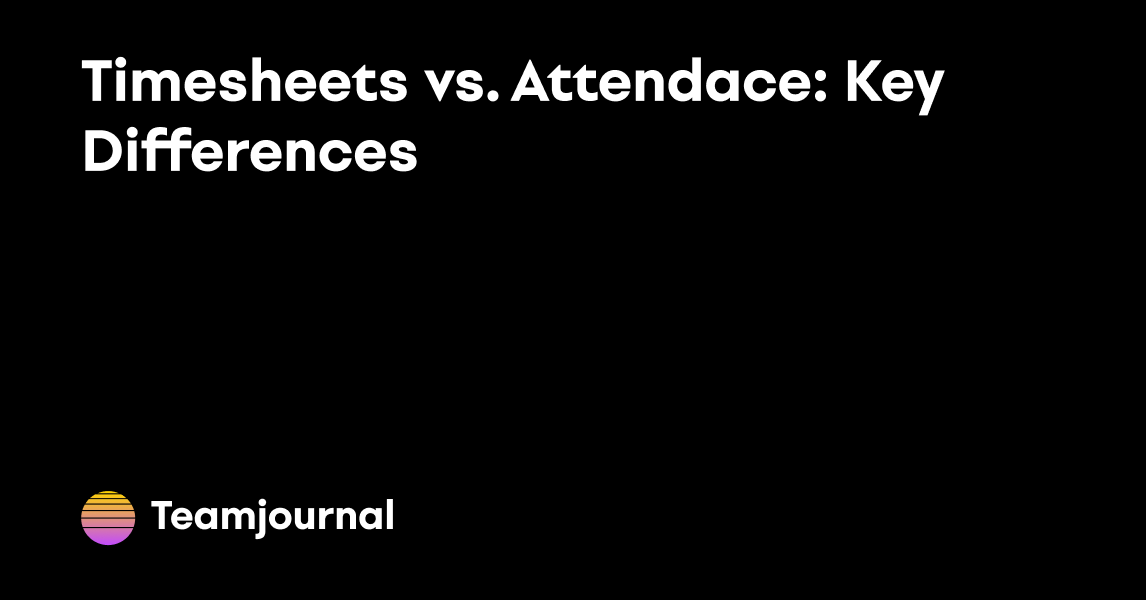
Timesheets vs. Attendace: Key Differences
The primary difference between timesheets and attendance lies in their purpose and the type of information they track.
Timesheets
Timesheets are used to track the amount of time an employee spends on various tasks or projects. They are primarily used for billing, payroll, project management, and productivity analysis.
Information Tracked
Timesheets typically record:
- Start and end times of work periods.
- Duration of work on specific tasks or projects.
- Breaks and lunch periods.
- Overtime hours.
Use Cases
Timesheets are crucial for:
- Employers who need to bill clients based on the hours worked by employees.
- Calculating wages for hourly employees.
- Analyzing the time spent on different projects to assess productivity and project costs.
Attendance
Attendance tracking is focused on monitoring whether employees are present or absent during their scheduled working hours. It ensures compliance with company policies regarding working hours and attendance.
Information Tracked
Attendance records typically include:
- Presence or absence of employees.
- Time of arrival and departure.
- Leave days (such as vacation, sick leave, personal leave).
Use Cases
Attendance records are essential for:
- Ensuring employees adhere to their scheduled work hours.
- Managing leave and ensuring proper staffing levels.
- Evaluating employee punctuality and reliability.
Key Differences
Focus
Timesheets focus on tracking the duration and specifics of work done, while attendance focuses on the presence and punctuality of employees.
Detail Level
Timesheets often provide a detailed breakdown of how time is spent on tasks or projects, whereas attendance is more about logging when an employee is present or absent.
Use in Payroll
Timesheets are more detailed and can be used for calculating billable hours and overtime, while attendance records help verify that employees are meeting their expected working hours for payroll purposes.
Summary
Timesheets detail how work time is spent, whereas attendance tracks if employees are present.
